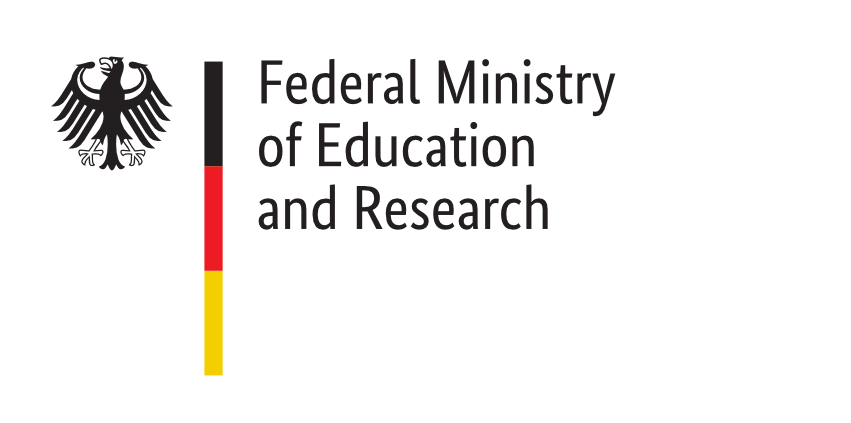Digitainable: Digitalization and Sustainability
- Title:
- Digitainable: Digitalization and Sustainability
- Duration:
- July 2019 – June 2022
- Contact:
- Prof. Dr. Jakob Rhyner
- Sponsor:
- Federal Ministery of Education and Research (BMBF)
- Partner:
- Bonn Alliance for Sustainability Research

The project “digitainable” investigates possible positive and negative impacts of the rapid progress in digitalization and artificial intelligence on sustainable development. For this purpose the project will map the different aspects of digitalization and artificial intelligence systemically onto the more than 200 indicators of the UN Agenda 2030 (and national sustainability strategies derived from the Agenda 2030). The results of the projects should support and objectify the discussions on the relation between digitalization and sustainability.
*digitainability
noun
Digitainability – a merge of the terms “digitalization” and “sustainability”, referring to the cross-fertilization between the processes of digitalization and sustainable development. The wording has been created within the project digitainable, carried out by the Bonn Alliance for Sustainability Research. Digitainable aims to understand the influence of D&AI on sustainable development by utilizing the expertise from natural, technological, and social science’s side. “Digitainability” characterizes something which combines both positive aspects of digitalization and sustainable development, or which facilitates both digitalization and sustainable development.

Mit dem Laden des Videos akzeptieren Sie die Datenschutzerklärung von YouTube.
Mehr erfahren
The Project at a Glance
Introduction
Digitalization is a major driver of change in many aspects of our lives, and there is an intense debate whether it impacts sustainable development positively or negatively. It is the principal goal of “digitainable” to shed light onto this question. The most systematic formulation of our current understanding of sustainability is provided by the UN Agenda 2030, adopted by the UN member states in September 2015. With its 17 Sustainable Development Goals (SDGs), specified by 169 targets, and more than 200 indicators, the sustainability landscape is charted comprehensively, including such diverse domains as improving health, eradicating poverty, gender equality, climate change and many others. To achieve these goals in the planned time, they require a breakthrough in terms of speed and degree of progress. It is believed that with the help of Digitalization and Artificial Intelligence (D&AI), the progress in the achievement of the SDGs can be boosted significantly. However, it is still unclear how well D&AI are helping in managing and monitoring the complex interlinkages of the broadly defined SDGs and their indicators, and where they might even inhibit progress. “Digitainable” aims to uncover these complex relations between the indicators of the SDGs and to understand the influence of D&AI on the SDGs’ progress by utilising the expertise from the natural and technological side as well from the social side.
Approach
Considering the framework, it is crucial to take an integrated approach to seek and scale up the synergies, mitigate tradeoffs existing between goals. The task is complicated by the fact that D&AI are hardly addressed explicitly, neither in the SDGs nor in the targets and indicators. Therefore, the connections are mostly of an indirect nature. The project’s approach to answering the identified questions is divided into the following phases:
Phase 1: The project will identify the influence of D&AI at indicator level both at the individual level as well as over the interlinkages. In order to explore the influence of D&AI, the project will, among other approaches, use the Theory of Change (ToC) as a method to realise the possible ways in which D&AI can interact with the indicators.
Phase 2: It is well known that there are numerous synergies and trade-offs existing between indicators. The project will investigate possible impacts of D&AI on these interrelations, and particularly seek to identify options where D&AI can enhance synergies
and alleviate trade-offs.
Research Questions
The research questions “digitainable” aims to answer are as follows:
RQ1: How are D&AI contributing and how can they contribute to the implementation of the SDGs, and where could they even inhibit progress?
RQ2: How efficiently are D&AI used for the achievement of the SDGs considering the complex synergies and tradeoffs between indicators?
RQ3: What are the current best practices and gaps in D&AI for the SDGs?
RQ4: What new approaches do we need in D&AI to foster digital cooperation, and who should be involved in the transformation required to timely achieve the SDGs?
The natural and technological aspect of the project was covered by Dr. Shivam Gupta and natural resources availability and energy transition implications aspects are covered by Jazmin Campos Zeballos. The social aspect was covered by Dr. Mahsa Motlagh.
The project description is also available for Download (PDF).
ACTIVITIES

WORKSHOP (April 28, 2020)
digitainable Thinkathon – Digitalization and Artificial Intelligence for Sustainable Development

WORKSHOP (February 23-24, 2021)
digitainable forum: Mindful use of Digitalization and Artificial Intelligence (D&AI) for the SDGs
The Digitalization Sustainability Matrix (DSM)
The Digitalization Sustainability Matrix: A Participatory Research Tool for Investigating Digitainability
Authors: Shivam Gupta, Mahsa Motlagh, Jakob Rhyner (Bonn Alliance for Sustainabilty Research/ Innovation Campus Bonn (ICB), University of Bonn)
Published in: Sustainability 2020, 12(21), 9283

Mit dem Laden des Videos akzeptieren Sie die Datenschutzerklärung von YouTube.
Mehr erfahren
The DSM serves as a means for collaborative methods, such as participatory action research, for the knowledge production process. We exercised the DSM in the Digitainable Thinkathon event, a gathering of experts from diverse sectors and backgrounds for capturing the action-oriented dialogues concerning the use of D&AI technologies for the indicators of SDGs 4 (Education) and 13 (Climate Action).
As a tool, the DSM aided in the discussion by systematically capturing transdisciplinary knowledge generated on several aspects, such as: (1) the need for research–practice nexus action; (2) data-capturing efforts and social considerations; (3) collaborative planning for utilizing the power of D&AI; (4) lessons from the diverse community to encourage the purposeful use of technologies. Overall, the proposed approach effectively triggered a discussion on the crucial aspects that need to be considered for D&AI’s practices, a step towards deep-rooting the transdisciplinary perspectives for meaningful use of D&AI for SDGs.
Publications
- S. Gupta, M. Motlagh, J. Rhyner, “The Digitalization Sustainability Matrix: A Participatory Research Tool for Investigating Digitainability”, Sustainability (2020) 12, 9283; https://doi:10.3390/su12219283
- S. Gupta, A. Degbelo. (2021). “An Empirical Analysis of AI Contributions to Sustainable Cities (SDG11)”. In: Mazzi, F. and Floridi, L. (eds) The Ethics of Artificial Intelligence for the Sustainable Development Goals. https://arxiv.org/ftp/arxiv/papers/2202/2202.02879.pdf
- S. Gupta and J. Rhyner, “Mindful application of digitalization for sustainable development: The Digitainability Assessment Framework”, Sustainability: Sustainable Engineering and Science. (2022), 14, 3114. https://doi.org/10.3390/su14053114
- S. Gupta, S. D. Langhans, S. Domisch, F. Fuso-Nerini, A. Felländer, M. Battaglini, M. Tegmark, R. Vinuesa. “Assessing whether artificial intelligence is an enabler or an inhibitor of sustainability at indicator level” Transportation Engineering 4 (2021): 100064, https://doi.org/10.1016/j.treng.2021.100064
- R. T. Javed, O.Nasir, M. Borit, L. Vanhée, E. Zea, S. Gupta, R. Vinuesa, and J. Qadir. “Get out the BAG! Silos in AI Ethics Education: Unsupervised Topic Modeling Analysis of Global AI Curricula” Journal of Artificial Intelligence Research 73 (2022): 933-965. https://doi.org/10.1613/jair.1.13550
- O. Nasir, R. Tallal Javed, S. Gupta, R. Vinuesa, J. Qadir (2023). “Artificial Intelligence and Sustainable Development Goals Nexus Via Four Vantage Points”, Technology in Society, Vol. 72, (2023), 102171 https://doi.org/10.1016/j.techsoc.2022.102171 (in press)
- Ö. Oktay, S. Trilles Oliver, A. Acedo, F. Benitez-Paez, S. Gupta, C. Kray. “Openness: A key factor for smart cities.” In Handbook of smart cities, pp. 1611-1642. Cham: Springer International Publishing, 2021. https://link.springer.com/content/pdf/10.1007/978-3-030-69698-6_69.pdf
- B. Sirmacek, S. Gupta, F. Mallor, H. Azizpour, Y. Ban, H. Eivazi, H. Fang, F. Golzar, I. Leite, G. I. Melsion, K. Smith, F. Fuso Nerini, R. Vinuesa. (2021), “The potential of artificial intelligence for achieving healthy and sustainable societies”. In: AI for Sustainable Development. Springer. https://arxiv.org/abs/2202.07424
- Gupta, Shivam, Jazmin Campos Zeballos, Gema del Río Castro, Ana Tomičić, Sergio Andrés Morales, Maya Mahfouz, Isimemen Osemwegie, Vicky Phemia Comlan Sessi, Marina Schmitz, Nady Mahmoud, and Mnena Inyaregh. 2023. “Operationalizing Digitainability: Encouraging Mindfulness to Harness the Power of Digitalization for Sustainable Development” Sustainability 15, no. 8: 6844. https://doi.org/10.3390/su15086844
Contact

Prof. Dr. Jakob Rhyner
Senior Professor, University of Bonn
Downloads
- Project Description
- Interview with Susanne Burger (Federal Ministry of Education and Research) on Digitalization and Sustainability
- The Digitalization Sustainability Matrix: A Participatory Research Tool for Investigating Digitainability by M. Motlagh, S. Gupta, J. Rhyner
- Digitainable Thinkathon digest, “Digitalization and Artificial Intelligence (D&AI) for SDG 4” by Mahsa Motlagh
- Digitainable Thinkathon digest, “Digitalization and Artificial Intelligence (D&AI) for SDG 13” by Shivam Gupta
- The “Digitainable Forum Booklet”
- Policy Brief: digitainable: Tools for the assessment of the impact of digitalization
on sustainable development by S. Gupta, J. Campos Zeballos, M. Motlagh, J. Rhyner (University of Bonn)

Sponsor

The project “digitainable: Digitalization and Sustainability” was funded by the Federal Ministery of Education and Research (BMBF)
